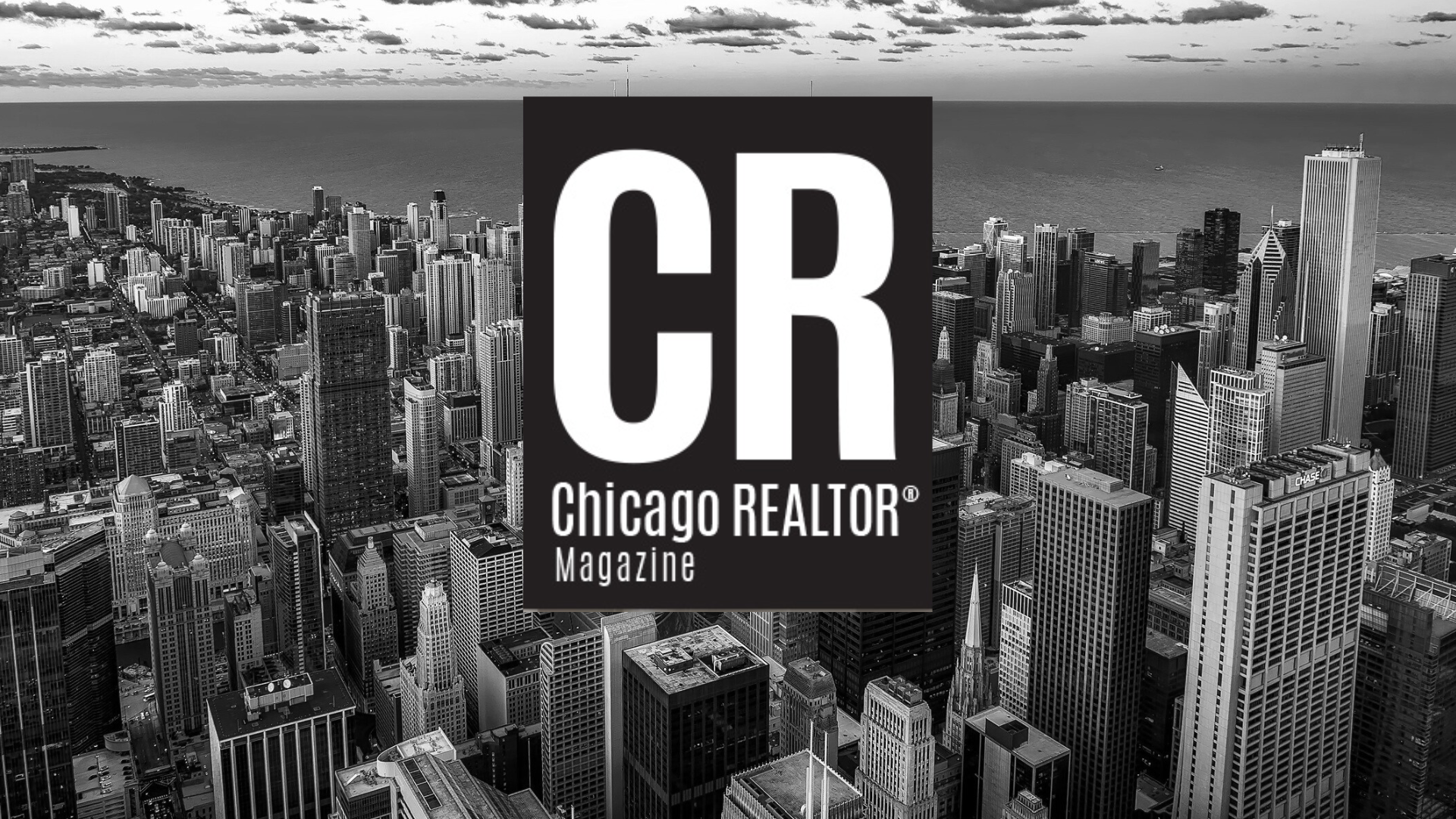2022 CHICAGO BUDGET: REAL ESTATE HIGHLIGHTS & CONCERNS
Mayor Lori Lightfoot presented her budget to City Council on September 20, 2021. The proposal contains $635 million to maintain and expand affordable housing and $202 million for homelessness initiatives. Other initiatives include 175 new community amenities, including grocery stores, commercial spaces and parks. The mayor is also proposing nearly $2 million in earmarked funds for the Abandoned Property grant program, a fund utilized by developers for the rehabilitation of properties. There are also dedicated funds to invest $141 million for vacant lot reduction and vacant building rehabilitation programming.
Included in the budget recommendation is a status update on Tax Increment Financing (TIF) districts throughout the city. A geographic area (usually, but not always, a blighted area) is approved as a TIF. There are some noted TIF areas in and around downtown Chicago. Taxes generated in a TIF District are not part of the city’s general pool of money; rather, TIF funds are used for projects specifically in the TIF District. The city reports a TIF surplus of $271.6 million. The surplus will yield $67 million for the city budget as well as $150 million for Chicago Public Schools.
Even though a property tax increase passed last year that allows for annual adjustments, the adjustments are pegged to inflation and will occur in perpetuity, unless City Council reverses the policy. With that being said, city government is growing. The Department of Housing is growing from a Full Time Equivalent (FTE) count of 81 in fiscal year 2021 to 92 in fiscal year 2022, and the overall department budget will increase by nearly $34 million.
Budget hearings and voting took place on October 27. The budget was enacted by a vote of 35 to 15. While this margin of victory is much greater than last year’s budget vote, it must be noted that two of the Mayor’s allies, including a chair of a City Council committee and the Council President Pro Tempore, voted against. The city’s finances will continue to be monitored by your GADs.
REALTORS® TESTIFY AGAINST “JUST CAUSE” EVICTIONS
The proposed Just Cause Eviction Ordinance is an outright violation of private property rights, going even further than the Fair Notice Ordinance passed during the pandemic (which extends the notice period beyond 30 days). As Just Cause proponents do not believe a property owner should be able to end a tenancy, property owners would no longer have a say in who stays in their property. While the proposal is touted as a way to avoid gentrification, it further reduces the very few remaining options of property owners when tenants break rules or exhibit behavior that disrupts the building and other tenants.
Eviction is always the last, worst-case scenario for any property owner. Not only are the landlord-tenant laws in Chicago extremely clear in their protection of tenants, but tenants have been further protected from eviction and even disincentivized to pay rent for the past +20 months by numerous mandates at all levels of the government, despite access to rental assistance.
The advocates claim there is an affordable housing crisis, yet they have proposals that increase the cost of housing. One example of this is the inclusion in the Just Cause Eviction ordinance of a mandatory registration fee for apartment units of any size, with the exception of owner-occupied 3 units or fewer, which is a clear cash grab that punishes those who have chosen to expand housing options and choices in our city by making available their private property. Another example: a provision for relocation fees.
Additionally, outside of the outsized financial burden these eviction ordinances have placed on property owners, this additional legislation threatens to overburden our court system moving forward, basically mandating that for a property owner to gain the right to ask a tenant to leave, a property owner must go to court. Going to court means hiring a lawyer, adding even more costs to an already costly business.
All in all, the Just Cause Eviction Ordinance goes too far to protect tenants and disregards private property rights entirely; it threatens to further burden the process of renting available housing to those in need and adds additional costs and risks to property owners already operating in an expensive, highly regulated environment. Chicago is already a challenging environment in which to rent out property; as such, we should be looking for solutions to expand access, reduce costs and encourage good neighbor behavior in our communities.
While the advocates do not have the votes in the Council to pass such a demonstrative piece of legislation, this effort is one we will continue to monitor earnestly.
JUNE 2022 IS NOT YOUR TYPICAL PRIMARY ELECTION
2022 is a mid-term election year, reflecting the halfway mark of the term of the President of the United States. Every member of the U.S. House of Representatives, 33 U.S. Senators, every member of the Illinois House of Representatives and a fraction of the Illinois Senate will be up for re-election. Also, up for election in 2022 are all Illinois Constitutional Officers, chief among them the Governor’s office.
Most voters in Chicago are used to trudging through wind, snow and other inclement weather in order to do the most basic civic duty, but this won’t be the case in 2022. Due to the wait for final census numbers to be submitted, Senate Bill 825 effectively moved next year’s primary election from March 15, 2022 to June 28, 2022. Please note, the general election date remains unchanged: November 8, 2022, when the respective nominees face-off to ultimately decide the winner of each contest. And, elections for the three city-wide posts (Mayor, Clerk and Treasurer) and all 50 aldermen will occur in February 2023, with the runoff election (for those races where no candidate reaches 50% plus one votes) to follow in April 2023.
Also facing a primary in 2022: the Cook County President, Assessor, Clerk, Sheriff, Board of Review and all 17 members of the Board of Commissioners, plus three seats on the Water Reclamation District. Remapping will change some dynamics, but ultimately voters will decide how these elected leaders have performed in their respective roles. While the primary will be held in late June, candidates have started to make announcements of interest to seek re-election, retire or challenge an incumbent. Typically, the primary is more important than the general election held in November because of the Democratic stronghold in Cook County and Chicago. Therefore, the winter and spring will bring many discussions of who and why a candidate should be supported to represent real estate interests.
WHY LOCAL ELECTIONS MATTER FOR OUR BUSINESS & COMMUNITIES
Over the past four years, we’ve seen a lot of legislation impacting residential rentals. Cook County has come up short in recognizing the increasing costs of housing. Additionally, to state the obvious, the pandemic took a huge toll on the economy, and some of the decisions made by our elected officials back in 2020 will have significant impact on the future (namely, the COVID-19 adjustment made by the Assessor’s Office to residential properties in the summer of 2020).
Following the passage of the Cook County Residential Tenant and Landlord Ordinance in early 2021, many small owners considered selling or actually sold their buildings. The eviction moratorium protected the rights of renters while outright ignoring the plight of many struggling housing providers with little reserves to cover non-paying tenants ineligible for or uninterested in rental assistance funds. Rising costs and risks eliminated many from participating in the business operations of being a landlord. Some housing advocates disagree with the business element of providing housing, but services are necessary for buildings and maintenance requires long-term planning and financing. It is hard work maintaining a building; therefore, profit must exist (even a slim one) for motivation to provide housing. Your GADs make this case to lawmakers every opportunity we can.
Additionally, this year, housing values increased drastically while commercial owners saw significant increases in Fair Market Value (FMV). The Assessor’s Office is supposed to give an assessment to properties based off a number of factors (including market trends, property characteristics, etc.). Numbers and data are very important; however, many neighborhoods have rows of vacant storefronts. 2022 will tell us if these vacancies will be filled to pre-pandemic levels. Typically, the market will adjust, and opportunities arise from consumer demand. But shifts in consumer spending may place additional hurdles to leasing those vacancies. The heavy assessments on commercial will play out this year and time will tell how businesses respond.
REALTORS® are voters – and your voice is important. If you’re not at the table, you’re on the menu. If you aren’t exercising your right to vote, private property rights will continue to be at risk and up for debate.







